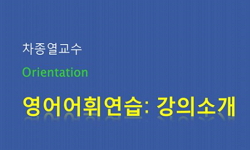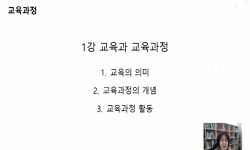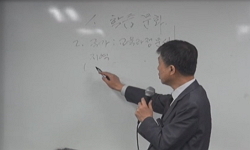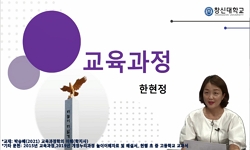This study aims to identify some of the main tasks for Korean lexical education, and discuss desirable directions for the future. The findings of this study are as follows. First, goals, contents, methods and guidelines for assessment have not yet bee...
http://chineseinput.net/에서 pinyin(병음)방식으로 중국어를 변환할 수 있습니다.
변환된 중국어를 복사하여 사용하시면 됩니다.
- 中文 을 입력하시려면 zhongwen을 입력하시고 space를누르시면됩니다.
- 北京 을 입력하시려면 beijing을 입력하시고 space를 누르시면 됩니다.
https://www.riss.kr/link?id=A104632150
-
저자
임지룡 (경북대학교)
- 발행기관
- 학술지명
- 권호사항
-
발행연도
2010
-
작성언어
Korean
-
주제어
어휘(vocabulary) ; 어휘교육(lexical education) ; 어휘능력(lexical ability) ; 어휘평가(lexical assessment) ; 교육과정(curriculum) ; 기초어휘(basic vocabulary) ; 객관주의 언어관(objectivist view of language) ; 개념주의 언어관(conceptualistic view of language) ; 탐구 학습(inquiry-based learning) ; 자의성(arbitrariness) ; 도상성(iconicity) ; 어휘(vocabulary) ; 어휘교육(lexical education) ; 어휘능력(lexical ability) ; 어휘평가(lexical assessment) ; 교육과정(curriculum) ; 기초어휘(basic vocabulary) ; 객관주의 언어관(objectivist view of language) ; 개념주의 언어관(conceptualistic view of language) ; 탐구 학습(inquiry-based learning) ; 자의성(arbitrariness) ; 도상성(iconicity)
-
등재정보
KCI등재
-
자료형태
학술저널
- 발행기관 URL
-
수록면
259-296(38쪽)
-
KCI 피인용횟수
25
- 제공처
-
0
상세조회 -
0
다운로드
부가정보
다국어 초록 (Multilingual Abstract)
This study aims to identify some of the main tasks for Korean lexical education, and discuss desirable directions for the future. The findings of this study are as follows. First, goals, contents, methods and guidelines for assessment have not yet been prepared, though lexical education is very important in terms of acquisition of lexical functions. Second, the main tasks of lexical education are as follows. (1) Its goals should be to promote use of accurate and rich vocabulary, widen world knowledge, and contribute to the creation of a language culture by enlarging and refining lexical knowledge and lexical awareness. (2) The curriculum should specify the elements involved in achieving the above goals. (3) Its methodology should follow an inquiry-based learning model. (4) Appropriate assessment criteria should be developed, focusing on the extent to which the goals have been achieved, and this assessment should be closely related to the curriculum contents. Third, desirable directions for lexical education are as follows. (1) It should follow a human-centered approach and an integrative and encyclopedic perspective according to the open-ended conceptualistic language view. (2) It should lead to inquiry-based learning, activating the learner's interest through precise observation, systematic analysis and description, and rational explanation. (3) It should enrich the learner's daily use of language by focusing on personal meaning. (4) It should inform the learner about the present state of Korean vocabulary and offer ways of mastering it, while motivating him or her to comprehend its properties and love its purified form.
참고문헌 (Reference)
1 임정선, "중학생 어휘력 신장 방안 연구" 숙명여자대학교 교육대학원 2005
2 임지룡, "인지의미론" 탑출판사 1997
3 임지룡, "의미의 인지언어학적 탐색" 한국문화사 2008
4 임지룡, "의미교육의 학습 내용에 대하여: 제7차 교육과정과 교과서를 중심으로" 한국어학회 33 : 87-116, 2006
5 Miller, G.A., "언어의 과학" 민음사 1998
6 김우창, "언어·사회·문체: 토착어를 중심으로 한 성찰" 동아일보사 26 : 262-271, 1983
7 김광해, "언어 지식 영역의 교수 학습 방법" 서울대학교 교육종합연구원 국어교육연구소 2 : 209-255, 1995
8 김광해, "어휘력과 어휘력 평가" 서울대학교 국어교육과 25 : 1-29, 1997
9 이영숙, "어휘력과 어휘 지도" 서울대학교 국어교육과 25 : 189-208, 1997
10 임지룡, "어휘력 평가의 기본 개념" 국어교육학회 30 : 1-41, 1998
1 임정선, "중학생 어휘력 신장 방안 연구" 숙명여자대학교 교육대학원 2005
2 임지룡, "인지의미론" 탑출판사 1997
3 임지룡, "의미의 인지언어학적 탐색" 한국문화사 2008
4 임지룡, "의미교육의 학습 내용에 대하여: 제7차 교육과정과 교과서를 중심으로" 한국어학회 33 : 87-116, 2006
5 Miller, G.A., "언어의 과학" 민음사 1998
6 김우창, "언어·사회·문체: 토착어를 중심으로 한 성찰" 동아일보사 26 : 262-271, 1983
7 김광해, "언어 지식 영역의 교수 학습 방법" 서울대학교 교육종합연구원 국어교육연구소 2 : 209-255, 1995
8 김광해, "어휘력과 어휘력 평가" 서울대학교 국어교육과 25 : 1-29, 1997
9 이영숙, "어휘력과 어휘 지도" 서울대학교 국어교육과 25 : 189-208, 1997
10 임지룡, "어휘력 평가의 기본 개념" 국어교육학회 30 : 1-41, 1998
11 김형철, "어휘 교육의 방법" 경남대학교 교육문제연구소 7 (7): 155-172, 1997
12 신명선, "어휘 교육의 목표로서의 어휘 능력(lexical competence)에 대한 연구" 한국어교육학회 26 (26): 263-296, 2004
13 조안나, "어휘 교육 연구: 중학교 『생활 국어』를 중심으로" 숙명여자대학교 교육대학원 2008
14 임지룡, "심리언어학: 머릿속 사전의 신비를 찾아서" 경북대학교출판부 1993
15 채영희, "생태학적 언어관에 의한 국어 어휘 교육" 배달말학회 36 : 365-388, 2003
16 閔賢植, "사용 능력 향상을 위한 語法 및 語彙의 수준별 교육 방안 연구: 제7차 교육과정의 수준별 교육과정을 대비하여" 한국어교육학회 105 : 193-232, 2001
17 임지룡, "문법 교육론" 역락 2010
18 이정화, "말하기 전략 활성화를 위한 어휘 교육 연구" 이화여자대학교 대학원 2010
19 김수업, "말꽃 타령" 지식산업사 2006
20 임지룡, "국어의 기초어휘에 대한 연구" 국어교육연구회 23 : 87-131, 1991
21 임지룡, "국어교육과 평가: 어휘력 평가 연구(연구보고서 98-4)" 서울대학교 교육종합연구원 국어교육연구소 1998
22 손영애, "국어과 어휘 지도의 내용 및 방법" 한국어교육학회 103 : 53-78, 2000
23 임지룡, "국어 지식 영역의 교재 구성 방안: 대단원 ‘우리말 사랑’을 중심으로" 국어교육학회 32 : 1-26, 2000
24 윤현주, "국어 어휘 지도 방안 연구: 중학교 국어를 중심으로" 이화여자대학교 교육대학원 2002
25 이충우, "국어 어휘 교육의 위상" 국어교육학회 13 : 467-490, 2001
26 이문규, "국어 교육의 이념과 어휘 교육의 방향" 배달말학회 38 (38): 383-402, 2003
27 임지룡, "20세기의 국어 어휘와 어휘연구" 국어국문학회 6 (6): 63-98, 2009
동일학술지(권/호) 다른 논문
-
학습자 사전에서의 유의어 선정과 기술 방법에 대한 연구-연세 현대한국어사전을 중심으로
- 한국어의미학회
- 조민정
- 2010
- KCI등재
-
- 한국어의미학회
- 이정애
- 2010
- KCI등재
-
「외국인을 위한 한국어 학습 사전」에 나타난 간접 인용 표지 ‘-고’의 검토
- 한국어의미학회
- 고경태
- 2010
- KCI등재
-
- 한국어의미학회
- 정진
- 2010
- KCI등재
분석정보
인용정보 인용지수 설명보기
학술지 이력
| 연월일 | 이력구분 | 이력상세 | 등재구분 |
|---|---|---|---|
| 2027 | 평가예정 | 재인증평가 신청대상 (재인증) | |
| 2021-01-01 | 평가 | 등재학술지 유지 (재인증) |  |
| 2018-01-01 | 평가 | 등재학술지 유지 (등재유지) |  |
| 2015-01-01 | 평가 | 등재학술지 유지 (등재유지) |  |
| 2011-01-01 | 평가 | 등재학술지 유지 (등재유지) |  |
| 2009-01-01 | 평가 | 등재학술지 유지 (등재유지) |  |
| 2006-01-01 | 평가 | 등재학술지 선정 (등재후보2차) |  |
| 2005-01-01 | 평가 | 등재후보 1차 PASS (등재후보1차) |  |
| 2003-01-01 | 평가 | 등재후보학술지 선정 (신규평가) |  |
학술지 인용정보
| 기준연도 | WOS-KCI 통합IF(2년) | KCIF(2년) | KCIF(3년) |
|---|---|---|---|
| 2016 | 1.06 | 1.06 | 0.86 |
| KCIF(4년) | KCIF(5년) | 중심성지수(3년) | 즉시성지수 |
| 0.97 | 0.96 | 1.503 | 0.13 |




 KISS
KISS






